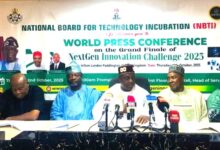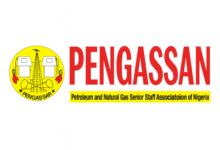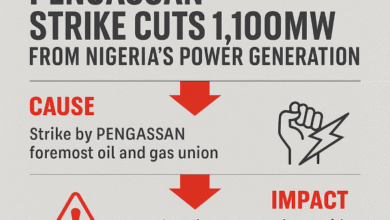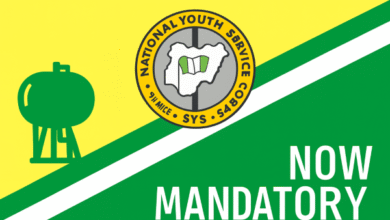Dangote, NPA Anchor Strategic Alliance to Expand Nigeria’s Blue Economy and Export Capacity

In what could become a defining moment for Nigeria’s marine logistics and export capabilities, the Nigerian Ports Authority (NPA) and Dangote Industries Limited (DIL) are joining forces to deepen the country’s maritime economy and catalyze export growth. The move signals a coordinated shift toward unlocking Nigeria’s underutilised port infrastructure to fuel broader economic transformation under the umbrella of the blue economy.
During a high-level engagement at the NPA headquarters in Lagos, Africa’s richest man, Alhaji Aliko Dangote, outlined an ambitious export roadmap that positions his conglomerate as a pivotal engine in Nigeria’s quest for forex stability, industrial growth, and marine sector rejuvenation.
“Our cement plant in Itori is already exporting. Soon, we’ll begin shipping coal. The fertilizer facility alone will load eight vessels. Our refinery will push out 25 million tons of products annually, including 700,000 metric tons of polypropylene,” Dangote stated.
He projected that, within two years, DIL’s fertilizer exports alone could generate up to $7 million daily—an injection that could significantly ease Nigeria’s foreign exchange pressures.
Maritime Muscle: From Cement to Crude, Dangote Charts Export Expansion
Dangote’s estimates are staggering: over 240 crude oil tankers and 600 product vessels annually from his Lekki operations, marking what he calls “an unprecedented volume of marine activity in Nigeria’s history.”
This logistical surge will require a robust and efficient port system—one that NPA’s Managing Director, Dr. Abubakar Dantsoho, affirmed is already in motion. According to him, the agency is ramping up efforts to modernize ageing infrastructure, citing the Tin Can and Apapa port upgrades slated for Q3 2025 and progress on five greenfield deep seaports: Ibom, Bakassi, Olokola, Ondo, and Badagry.
“The last major port infrastructure Nigeria built was Tin Can in 1977,” Dantsoho noted. “That’s about to change. With the deep seaports coming, we are looking at a new era in marine logistics and trade facilitation.”
A Convergence of Policy and Private Sector Scale
The NPA-Dangote collaboration underscores the relevance of the Marine and Blue Economy Ministry, a portfolio introduced under President Bola Tinubu’s administration to diversify Nigeria’s revenue base. The partnership aligns with the government’s broader industrial and trade policy goals, including the “Naira for Crude” initiative—hailed by Dangote as a game-changer for transaction efficiency.
With Dangote emerging as the country’s top non-oil exporter and the likely largest single foreign exchange contributor within the decade, the implications are profound. Not only could Nigeria reduce reliance on crude oil exports, but the multiplier effect across marine engineering, logistics, port operations, and industrial output could redefine coastal economic clusters.
Strategic Headwinds and Infrastructure Demands
Still, Dangote flagged operational bottlenecks, urging the federal government to equip NPA with additional assets—especially tugboats and critical handling equipment—to ensure seamless loading and evacuation.
“If we don’t get the necessary support, these operations may stumble,” he warned, referencing the scale and sophistication of DIL’s integrated export terminals.
Dantsoho echoed the call for inter-agency synergy, especially within the National Single Window framework, noting that 95% of port transactions are now digitally processed, a significant leap toward maritime efficiency.
Outlook: Nigeria’s Port-Led Industrial Revolution
The significance of this private-public synergy is hard to overstate. Nigeria’s port ecosystem has long suffered from underinvestment, congestion, and inefficiency. Yet, with DIL’s export pipeline poised to rewire trade flows and NPA’s reform agenda gaining traction, the stage is set for a maritime renaissance.
The anticipated increase from 57 vessels per month to 600 annually under the Dangote portfolio alone is a loud wake-up call. Port efficiency is no longer a bureaucratic exercise—it’s a bottom-line national imperative.
With bold infrastructure moves and policy clarity, Nigeria’s blue economy may yet become the country’s most potent post-oil growth engine.
BRANDECONOMY Insight
Analysis: The port economy isn’t just about ships and cargo. It’s a vital revenue lever, a foreign exchange buffer, and a job creation catalyst. With Dangote leading the charge and NPA acting as enabler-in-chief, Nigeria’s marine future might finally be buoyant.











